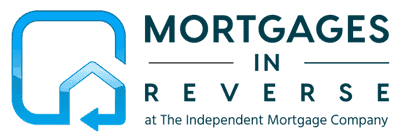So, you've decided to retire in Vancouver, the city where rain is considered a charming weather pattern and the cost of living is just a trifling concern. But let's be realistic. With sky-rocketing property prices, how can you maintain a comfortable lifestyle in your golden years?
Here's a thought – ever considered a reverse mortgage? This financial tool could be the answer to your prayers, or a Pandora's box of new problems. Stick around, there's a lot more to uncover about this intriguing option.
Key Takeaways
- Reverse mortgages offer Vancouver homeowners aged 55 and above a way to convert home equity into cash without monthly repayments.
- Financial flexibility comes with potential risks, including increased loan balance and decreased inheritance, necessitating professional advice.
- Benefits include tax advantages, no monthly payments, and improved retirement comfort, making reverse mortgages an attractive retirement solution.
- Understanding the terms and conditions, alongside proper maintenance of property and taxes, is crucial to avoid default consequences and unexpected costs.
Understanding Reverse Mortgages
So, what exactly is a reverse mortgage? It's a financial product that allows you, as a homeowner, to convert part of the equity in your home into cash. Unlike traditional mortgages or home equity loans, a reverse mortgage doesn't require you to make monthly payments. Instead, the loan repayment occurs when you sell your home, move out permanently, or pass away.
As you're exploring mortgage alternatives, consider the appeal of a reverse mortgage. You get to stay in your home while tapping into its value. It's a lifeline for many seniors in Vancouver who need financial flexibility. However, it's not without its complexities. The loan amount, plus interest, adds up over time. This increases your loan balance, which is paid off when the home is sold.
The reverse mortgage, while a useful tool, affects your estate's value. As the loan repayment reduces the sale proceeds, it can impact any inheritance you plan to leave. It's essential to understand these aspects, balance them with your financial needs, and consult with a financial advisor before deciding. Remember, a reverse mortgage is one of many mortgage alternatives. It's all about finding the right fit for your situation.
Eligibility Criteria for Reverse Mortgages
Navigating the eligibility criteria for reverse mortgages is a crucial step for homeowners considering this financial option. To qualify, you need to be at least 55 years old and own your home outright or have a low mortgage balance that can be paid off at closing. Your home must be your primary residence, meaning you live there more than half the year.
As part of the application process, you'll need to meet with an independent counselor approved by the government to ensure you understand the loan's terms and implications. You're also obligated to maintain your property and pay property taxes and homeowners insurance.
One of the vital factors you should understand pertains to loan limitations. The amount you're eligible to borrow depends on several variables, including your age, the appraised value of your home, and the current interest rates. Typically, the older you are, the more valuable your home, and the lower the interest rates, the more you can borrow. However, there's a ceiling to these limitations to protect both you and the lender from potential risks.
Taking time to comprehend these factors will aid your decision-making process, ensuring you're fully aware of what a reverse mortgage entails.
Benefits of Reverse Mortgages
Often overlooked, reverse mortgages offer numerous benefits that can significantly enhance your financial stability in retirement. One of the most remarkable benefits is the Equity Access. This allows you to tap into your home's equity without needing to sell or move out. You've spent years building up this equity; it's only fair that you should have the opportunity to use it when you need it most.
Additionally, reverse mortgages aren't considered income. Therefore, they offer Tax Advantages as the money you receive is typically tax-free. This could potentially increase your net income and make your retirement more comfortable.
It's also worth noting that a reverse mortgage doesn't require monthly mortgage payments. This can greatly reduce your financial stress, giving you more flexibility in your budget.
Lastly, the payout from a reverse mortgage is flexible. You can choose to receive it as a lump sum, a line of credit, or monthly payments. This flexibility allows you to tailor the mortgage to your specific financial needs and goals.
Potential Risks Involved
While the benefits of reverse mortgages are undeniably attractive, it's equally important for you to be mindful of the potential risks involved. As with any financial decision, understanding the risks can save you from unpleasant surprises down the line.
One major risk is the potential for default consequences. If you fail to meet the terms of the loan, such as maintaining your home or paying property taxes, your loan could default. This could lead to loss of your home.
Another risk is the accumulation of interest. As you receive payments from the reverse mortgage, interest on the loan accumulates. Over time, this could significantly reduce your equity in the home.
Below is a summary table to help you understand these risks better:
| Risk | Description | Consequence |
|---|---|---|
| Default Consequences | Failure to meet loan terms | Potential loss of home |
| Interest Accumulation | Interest accrues on received payments | Reduced home equity |
| Limited Equity | High loan-to-value ratio | Less inheritance for your heirs |
| Unexpected Costs | Costs such as closing fees, servicing fees, etc. | Increased loan balance |
Reverse Mortgages: A Case Study
To fully grasp the practical implications of reverse mortgages, let's delve into a detailed case study. Imagine yourself as a senior homeowner in Vancouver, looking for mortgage alternatives to maintain financial stability.
You own a house worth $800,000 with no outstanding mortgage. You're struggling to meet your daily expenses because your pension isn't stretching far enough. You decide to opt for a reverse mortgage. This allows you to borrow against your home's equity, providing a steady stream of income. You don't have to worry about making monthly repayments, and you can continue living in your home.
From the seniors' perspective, it's an attractive proposition. You get to access funds without selling your home or accruing monthly payments. However, it's crucial to remember that the loan, plus interest, will have to be paid back eventually, usually when you sell your home, move out permanently, or pass away.
This case study illustrates the potential advantages and drawbacks of reverse mortgages for seniors. It's clear that while they provide a feasible mortgage alternative for cash-strapped seniors, careful consideration is required due to the long-term implications. It's always wise to explore other financial options and seek professional advice before making such a significant decision.
Frequently Asked Questions
How Is the Reverse Mortgage Market in Vancouver Specifically Different From Other Regions in Canada?
Vancouver's reverse mortgage market is a unique beast among Canadian regions. You'll find Vancouver's legislation impacts the eligibility requirements for reverse mortgages, shaping a distinct landscape.
Unlike other regions, property value skyrockets here, influencing the borrowing limit. Also, you'll find tighter regulations, meaning you need to cross more t's and dot more i's to qualify.
Are There Any Local Vancouver-Based Companies That Specialize in Reverse Mortgages?
Yes, you'll find several Vancouver-based companies that specialize in reverse mortgages. However, remember that Vancouver-specific regulations can impact these services.
It's important to weigh the pros and cons of Vancouver reverse mortgages before proceeding. Local companies may offer specialized knowledge of the market, but ensure you understand the implications and potential risks.
Always seek professional advice when dealing with complex financial products like reverse mortgages.
How Has the Vancouver Housing Market Influenced the Popularity of Reverse Mortgages?
Vancouver's soaring real estate prices have made you feel like you've hit the jackpot. But wait, there's a catch. You can't tap into that wealth without selling. That's where reverse mortgages come in. Thanks to market dynamics, they've become popular mortgage alternatives.
You can convert a part of your home equity into cash, without selling your house. It's like having your cake and eating it too! The Vancouver housing market has indeed played a pivotal role.
What Are the Tax Implications of a Reverse Mortgage in Vancouver?
In Vancouver, tax implications of a reverse mortgage aren't straightforward. You can't claim tax deductions for mortgage interest as with a traditional mortgage.
The funds you receive aren't taxable income, but they may impact your eligibility for certain government benefits. It's crucial you understand these nuances before deciding on a reverse mortgage.
Always consult a financial advisor to ensure you're making the most informed decision for your financial health.
How Can I Find a Reliable Reverse Mortgage Counselor in Vancouver?
To find a reliable reverse mortgage counselor in Vancouver, you'll need to check their qualifications carefully. Online resources can be a treasure trove of information. Websites like Better Business Bureau or Canadian Association of Credit Counseling Services can guide you. They're brimming with reviews and ratings.

